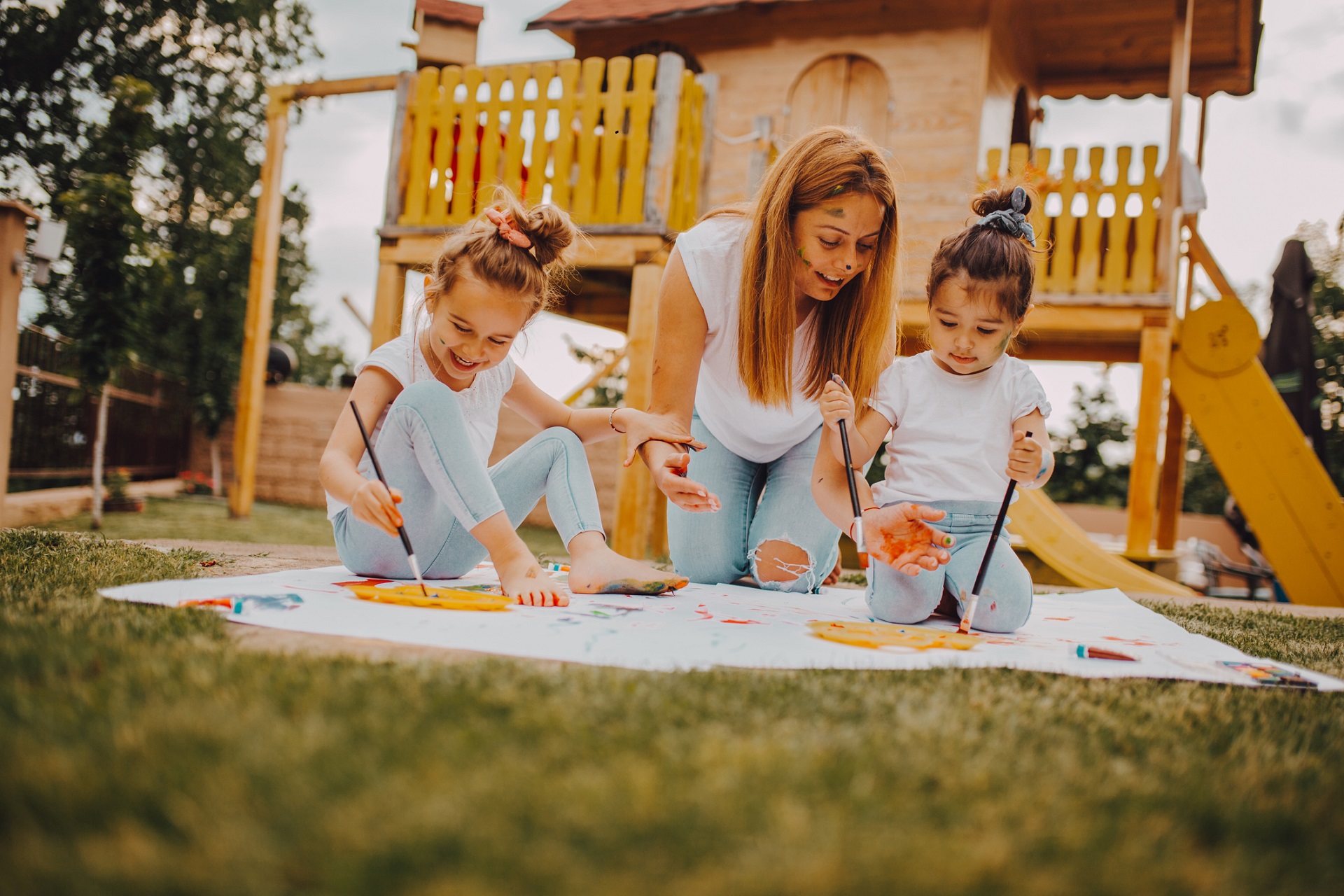Activities to Support Reading Readiness and Develop Phonological Skills
Caroline Wright, our Early Childhood Director, shares with us some fun activities you can do at home to support your child with their reading readiness, and help develop phonological skills ready for school.
Helping children to develop their listening skills, enables them to discriminate sounds in words. Playing with sounds and experimenting with rhythm and rhyme will help them hear the rhythm of spoken and written language, and they will begin to make the sounds in words that they will later read in books.
Don’t worry about letters, words and flash cards… these can come later. For now, have fun and use these activities to develop those listening skills!
Go for a ‘listening walk’
When going shopping or sitting in the garden, stop, close your eyes for a few moments and listen. What can you hear? Aeroplanes, a dog barking, a child crying a few gardens away, the sound of a fire engine in the town. Remind your child what ‘good listeners’ do: keep quiet, have ears ready and listen. Talk about the different sounds you can hear. Your child can then draw a picture of what they heard.
Drumming outdoors
Find a couple of sturdy sticks, you could use a couple of wooden spoons or some stiff pencils – one for you, and one for your child. Wander around the garden tapping things to listen to what they sound like – try the tree, the leg of the garden table and the chair. Do they sound the same, or different? What about pipes, plant pots of different sizes, the watering can, your garden steps - what do you notice about how they sound? Which do you like best and why? Move items around the garden and play a ‘tune’.
Sing the Jack song with your child
Your child will know the song well by now, or you could do ‘robot’ sounds (spea-king in a ro-bot sty-le voice) or ‘silly’ sounds – all of these help your child to discriminate different kinds of sounds and then support listening when they play back and listen to their own voices.
J – A – CK, Jack, J – A – CK, Jack
What is in your S – A – CK, Sack?
Here are some things you could put in your sack: S – O – CK, P – E – N, H – A- T.
Pull the items out of the sack one by one and with robot speak, sound out the name of the items.
Mrs Browning has a Box
Find an old box or bag. Put roughly half a dozen items in it (a packet of crisps, some keys, a squeaky toy). Put your hand in the box and as you sing the song, pause to let the child try to guess what item is making the sound. You can then both make the sound with your voices.
Sing to the tune of ‘Old MacDonald Had a Farm’:
Mrs Browning has a box ee I, ee I, oh….
And in that box she has a ……. PAUSE – GESTURE AND ASK YOUR CHILD TO LISTEN.
HANDLE ONE OF THE OBJECTS, OUT OF SIGHT TO MAKE A NOISE.
CONTINUE THE SONG BUT USING YOUR VOICES TO MAKE THE SOUND
With a ‘crackle crackle’ here, and a crackle crackle there…..
With a squeak squeak here….. with a jingle jingle here…..
Allow your child to take a turn and you guess what’s in the box.
Sing lots of rhymes and songs
Make up song bags to illustrate your child’s favourite songs. For example, the wheels on the bus (toy bus), plastic duck (five little ducks), plastic frog (five little speckled frogs) and pull them out of the song bag one by one to trigger a singing session.
Use your tapping sticks as musical instruments when you sing
Tap out a rhythm which helps to develop children’s understanding of rhythm in spoken and written language.
Be silly and have fun with sounds
Make up silly sentences with words that all start with the same letter – ping pang poo pop, mig mog mully mo, fo fi fanle fee – imagine what these strange creatures might look like? Draw them… are they aliens or monsters? This is playing with words and alliteration.
Play ‘I Spy’
This is great for initial sounds and it really doesn’t matter if they get it wrong (h for hairoplane???) your child might find this hard in the early stages because it’s really hard to separate out the first sound. That’s why playing all the other games are so important; don’t be anxious if they can’t hear the initial sound yet – go back and do more games that help to refine hearing and listening skills.
We have lots of resources and ideas to get you started by visiting our play and learning at home section.




